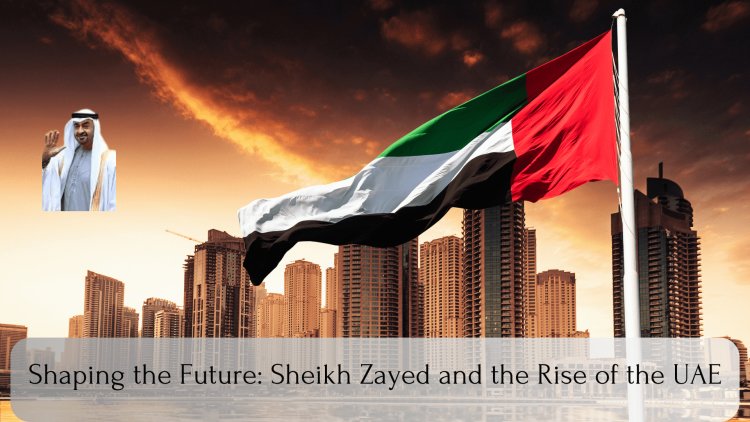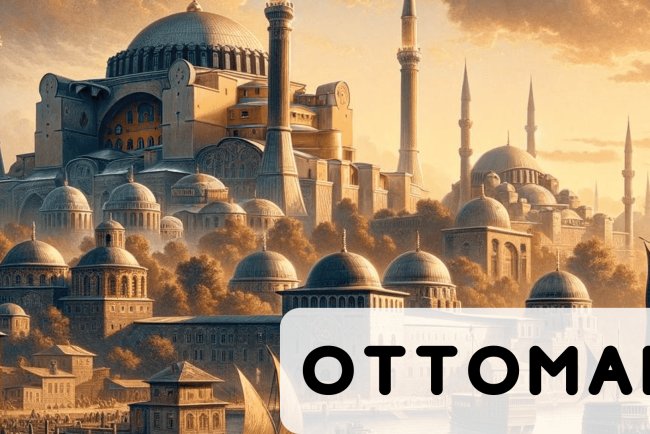Shaping the Future: Sheikh Zayed and the Rise of the UAE
"Shaping the Future: Sheikh Zayed and the Rise of the UAE" explores the transformative journey of the United Arab Emirates from desert lands to a global powerhouse, under the visionary leadership of Sheikh Zayed bin Sultan Al Nahyan. This concise narrative delves into the founding of the UAE, highlighting the unity of seven emirates and the monumental strides towards modernization and development. It pays tribute to Sheikh Zayed's enduring legacy in fostering a nation that values cultural heritage, environmental conservation, and forward-thinking governance. Discover the story of a leader whose wisdom and dedication crafted a prosperous future for his people.

The Birth of a Union: The Founding of the United Arab Emirates
The United Arab Emirates (UAE) represents one of the most remarkable success stories in the modern Middle East. In this blog post, we will explore the story of how a nation rose from the desert to become a global hub for commerce and a paradise for tourists. The founding of the UAE is a story of regional unity and visionary leadership.
Prehistory and British Protection
Before diving into the founding story of the UAE, it's essential to glance back at the region's past. At the beginning of the 19th century, the area that is now the UAE was mostly desert inhabited by various tribes. Known as the "Pirate Coast" for its strategic importance in Indian Ocean maritime activities, Britain signed a series of agreements with the region to protect its maritime routes, officially bringing the area under British protection in 1892.
Towards Independence
By the mid-20th century, the discovery of oil reserves was set to transform these relatively overlooked lands on the Arabian Peninsula. Britain's decision to withdraw from the area in 1968 prompted the seven emirates - Abu Dhabi, Dubai, Sharjah, Ajman, Umm Al-Quwain, Fujairah, and Ras Al Khaimah - to come together and make significant decisions about shaping their future.
Formation of the Union
In 1971, with Britain's official withdrawal, the seven emirates united to form the independent state of the United Arab Emirates. The foundation of this union was built on mutual understanding and cooperation, led by the Emir of Abu Dhabi, Sheikh Zayed bin Sultan Al Nahyan, and the Emir of Dubai, Sheikh Rashid bin Saeed Al Maktoum. Sheikh Zayed became the UAE's first President, playing a central role in the country's unification and development.
Modernization and Development
Since its inception, the UAE has undergone a rapid process of modernization and development. Dubai and Abu Dhabi, in particular, have become global leaders in international trade, finance, and tourism. By wisely investing oil revenues, the UAE has made significant investments in education, healthcare, and infrastructure, significantly improving the quality of life for its citizens.
Cultural Heritage and Future Vision
Despite achieving economic and social success on a global scale, the UAE places great importance on preserving its cultural heritage and traditions. The country also embraces a vision for leading on future-critical issues such as sustainability and renewable energy.
The founding of the United Arab Emirates is a story of strength and success born from the unity of different emirates. The region's strategic significance, natural resources, and visionary leadership have played key roles in transforming the UAE into a global hub. The UAE continues to shine as a model of unity and cooperation in the modern world, with a bright vision for the future.
Sheikh Zayed bin Sultan Al Nahyan: Architect of the United Arab Emirates
In the annals of history, few leaders have left an indelible mark on both their country and the world as Sheikh Zayed bin Sultan Al Nahyan. As the founding father of the United Arab Emirates (UAE), his visionary leadership not only unified a disparate group of emirates into a single nation but also set it on a path of unprecedented development and prosperity. This blog post delves into the life of Sheikh Zayed, exploring his journey from the ruler of Abu Dhabi to the architect of a modern state that stands as a testament to his enduring legacy.
Early Life and Rise to Power
Born in 1918 in the emirate of Abu Dhabi, Sheikh Zayed was immersed in the Bedouin traditions of the desert from an early age. His upbringing in the oasis of Al Ain during a time of limited resources instilled in him a profound respect for the environment and an understanding of the challenges of desert life. His leadership qualities became evident early on, and in 1966, after serving as the representative of the ruler in the Eastern Region of Abu Dhabi, he succeeded his brother as the ruler of Abu Dhabi.
Vision for Unity
Sheikh Zayed's ascendancy to power coincided with a period of significant change in the region, marked by the discovery of oil. Recognizing the transformative potential of oil revenues, he embarked on an ambitious program to develop Abu Dhabi. However, his vision extended far beyond the borders of his emirate. He believed in the strength of unity and the potential of a federation to ensure the prosperity and security of the people in the region. This belief led to the formation of the United Arab Emirates in 1971, uniting seven emirates under a single flag.
Architect of a Nation
As the first President of the UAE, a position he held until his death in 2004, Sheikh Zayed's leadership was characterized by a deep commitment to the welfare of his people. He prioritized the development of infrastructure, healthcare, and education, laying the foundations for a modern state. His policies were guided by the principles of equality, justice, and the economic development of the UAE, ensuring the wealth generated from oil and gas was invested in building a sustainable future for the nation.
Environmental Stewardship
One of Sheikh Zayed's enduring legacies is his commitment to environmental conservation. He initiated numerous projects to protect the UAE's natural heritage, including the greening of the desert through an extensive tree planting campaign and the establishment of wildlife reserves. His environmental policies reflected a deep understanding of the balance between development and sustainability.
Diplomacy and Philanthropy
Internationally, Sheikh Zayed was renowned for his diplomatic skills and commitment to peace in the Middle East. He was a firm believer in the power of dialogue and cooperation in resolving conflicts. Beyond diplomacy, his philanthropy was boundless, with significant contributions to health, education, and welfare projects around the world, earning him a reputation as a leader genuinely committed to the betterment of humanity.
Legacy
Sheikh Zayed bin Sultan Al Nahyan's legacy is evident in the modern, prosperous, and harmonious society that is the UAE today. Under his leadership, the UAE transformed from a collection of small desert emirates into one of the most developed nations in the world. His vision for the country, his commitment to its people, and his belief in the power of unity continue to inspire not only Emiratis but people all over the world.
As we reflect on the life of Sheikh Zayed, we are reminded of the profound impact that visionary leadership can have on a nation's destiny. His story is not just a tale of nation-building; it is a testament to the power of unity, the importance of sustainable development, and the enduring value of compassion and humanitarianism. Sheikh Zayed bin Sultan Al Nahyan remains a guiding light for the UAE and a symbol of wise leadership and benevolence on the world stage.
What's Your Reaction?



















